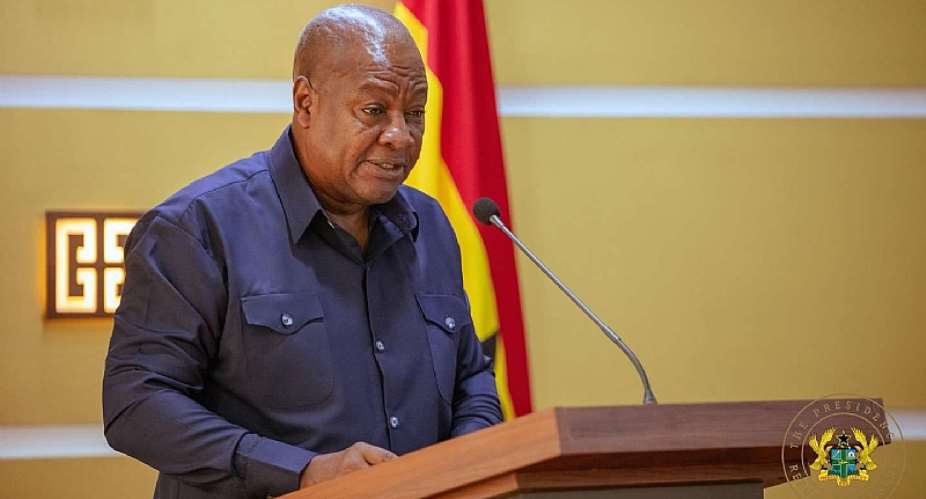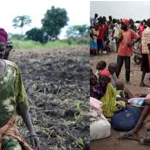
A Coordinated Plot to Destabilise West Africa? Signs Point to a Growing Threat

A series of high-stakes provocations, misinformation campaigns, and violent incidents unfolding over the past two weeks suggests a deliberate effort to destabilise West Africa, with Ghana increasingly at the centre.
Uncovered by West Africa Weekly’s Editor-in-Chief David Hundeyin, the disturbing pattern points to an externally coordinated strategy aimed at fracturing fragile regional alliances and provoking tensions between neighbouring states.
The chain of events began on July 11, 2025, when Ukrainian President Volodymyr Zelensky tweeted that Ghana had entered into multiple defence agreements with Ukraine, including plans to purchase Ukrainian drones and deploy Ukrainian soldiers to secure Ghana’s borders.
Ghana is also interested in our technologies, the production of various types of drones, and the experience Ukraine has gained during this war. Ghana is ready to finance our production, and we are ready to help our partners secure their borders,” Zelensky posted.
The statement went viral, but it was entirely false.
Ghana’s government quickly debunked the claim, calling it “untrue and inflammatory”, and many saw it as an attempt to drive a wedge between Ghana and its Sahelian neighbours, particularly Burkina Faso, which has had a strained relationship with Ukraine in recent years.
Around the same time, a 2013 video resurfaced on Ghanaian social media showing a Nigerian man discussing the idea of creating an Igbo ethnic kingdom within Ghana. Though outdated and irrelevant to current affairs, the clip quickly became the centrepiece of a bot-driven hashtag campaign, #NigeriaMustGo, designed to inflame anti-Nigerian sentiment.
Ghanaian Foreign Minister Samuel Okudzeto Ablakwa issued a public clarification, confirming that the video was from 2013 and had been taken out of context, with no bearing on present-day realities.
Then came the most disturbing event of all.
On July 8, 2025, Freda Arnong, a Ghanaian diplomat posted to Ghana’s High Commission in Abuja, was found dead under horrifying circumstances. The killers made no ransom demands. Instead, they tortured and murdered her, dumping her body on the roadside in what is described as a “message killing.”
Just days later, the official residence of Ghana’s ambassador to Nigeria was burgled. While no one was harmed, the intrusion added to a growing trend of targeted intimidation.
According to Hundeyin, the events fit a historical pattern: divide-and-conquer tactics used by external powers seeking to manipulate African geopolitics for their strategic interests.
Ghana, under President John Mahama, has walked a diplomatic tightrope in recent months, seeking to repair ties with the Confederation of Sahel States (CSS), comprising Burkina Faso, Mali, and Niger, while maintaining constructive relationships with Western nations. The false claims, misinformation campaigns, and violent incidents may be part of a broader strategy to isolate Ghana and weaken cooperation across the region.
To their credit, Ghanaian authorities have responded with restraint, refusing to retaliate rhetorically or militarily. But concern is growing that the situation could escalate if these provocations continue unchecked.
The question now is not just who is behind these provocations, but whether the region’s leaders can stay united long enough to resist the pressure.
The stakes are high. So far, no one has claimed responsibility.
About The Author
Mayowa Durosinmi
author
M. Durosinmi is a West Africa Weekly investigative reporter covering Politics, Human Rights, Health, and Security in West Africa and the Sahel Region
Mayowa Durosinmi
M. Durosinmi is a West Africa Weekly investigative reporter covering Politics, Human Rights, Health, and Security in West Africa and the Sahel Region
2 Comments
Leave a Reply Cancel reply
Related Articles
Asake Sets New Billboard Afrobeats Record as Chart Presence Grows
Asake has further cemented his place as one of Afrobeats’ most dominant...
ByWest Africa WeeklyJanuary 29, 2026Nigerians Lament PayPal’s Return as Old Wounds Resurface
PayPal’s reentry into Nigeria through a partnership with local fintech company Paga...
ByWest Africa WeeklyJanuary 29, 2026Tanzania Eyes Gold Sales as Aid Declines and Infrastructure Needs Grow
Tanzania is weighing plans to sell part of its gold reserves to...
ByWest Africa WeeklyJanuary 29, 2026Mali Tightens Grip on Explosives Supply With New Majority Stake
The Malian government has taken majority ownership of a civil explosives manufacturing...
ByWest Africa WeeklyJanuary 29, 2026












The event in Ghana underscore the persistent influence of former colonial powers on African nations, suggesting that true independence remains elusive.
These powers continue to exert control over African political systems, often prioritizing their interests over the well-being of African citizens.
To achieve genuine sovereignty and unlock the continent’s potential, Africa requires a unified, youth-driven movement, independent of the African Union (AU), which is perceived as compromised by external influences.
A new framework, inspired by the youth-led transformations in Burkina Faso, is essential for Africa’s resurgence.
Very insightful